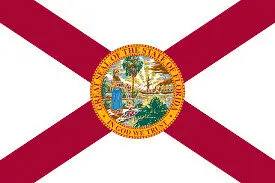Idaho Wills vs. Trusts
Estate planning in Idaho can be straightforward with the right approach. For Idaho residents evaluating whether a will or trust better serves their needs, understanding the fundamental differences between these options is essential to prevent family stress, reduce expenses, and eliminate unnecessary complications. This thorough resource explores Idaho’s particular estate planning provisions and offers direction to ensure your estate is handled according to your specific wishes.
Table of Contents
US Map For The Different Will and Trust Requirements by State
Interested in other state’s law regarding wills and trusts? Click the ABOVE state you want to be taken to.
Idaho Will Requirements
An Idaho Last Will and Testament should include:
- Age and Capacity: Testator must be “of sound mind” and at least 18 years old or an emancipated minor
- Format: Must be in writing
- Signature: Must be signed by the testator or by another person at the testator’s direction while in the testator’s presence
- Witnesses: Must be signed by at least two witnesses (at least 18 years old) who observed either the testator signing or acknowledging the signature
- Interested Witnesses: Will is not invalid solely because it is attested by an interested witness
Self-Proved Wills
Idaho wills do not require notarization but can be made “self-proved” if the testator and witnesses execute a compliant affidavit. This provides evidence that:
- The testator signed voluntarily with requisite capacity
- The testator intended the document to be treated as a will
- The testator was not under constraint or undue influence
A self-proved will can be admitted in probate without in-person testimony of witnesses. The Idaho Legislature provides a model self-proved affidavit within Id. Stat. §15-2-504.
Memorandum of Personal Property
Idaho law authorizes a testator to incorporate a written statement or list of tangible personal property not addressed in the will itself. This list:
- Must be referenced in the will
- Must identify items and beneficiaries with reasonable certainty
- Must be either written in the testator’s handwriting or signed by the testator
- Can be prepared before or after the will’s execution
- Can be altered by the testator after its creation
Important Limitation
A memorandum of personal property may not be used to transfer:
- Real estate
- Cash
- Promissory notes or other evidence of indebtedness
- Title documents
- Securities
- Personal property used in a trade or business
THE ULTIMATE FREE DOWNLOAD
The Estate Planners Tactical Guide
Essential Legal Protection for Achievers

Amendment, Revision, and Revocation of Idaho Wills
Amending an Idaho Will
An Idaho will may be amended by:
- Executing another will that supplements and is not inconsistent with the existing will
- Executing a codicil (a separate document amending an existing will)
Either method must satisfy all legal requirements for execution of an original will.
Revoking an Idaho Will
An Idaho will can be revoked—in whole or in part—by:
- A later will that either expressly revokes the earlier will or has inconsistent terms
- Burning, tearing, canceling, obliterating, or destroying the document with intent to revoke
If a will was executed in duplicate, revocation of one copy is sufficient to revoke the will.
Automatic Revocation by Divorce
If a testator is divorced after executing a will:
- Any provisions in favor of the former spouse are revoked by operation of law (unless the will, divorce agreement, or another contract between spouses states otherwise)
- Revoked provisions are treated as though the former spouse did not survive the testator
- A decree of separation (not formally severing the marriage) does not trigger revocation
- Revoked provisions are automatically reinstated if the testator remarries the former spouse
These rules also apply to other revocable non-probate instruments (transfer-on-death designations, revocable living trusts, etc.).
Marriage After Will Execution
If a testator marries after executing a will and omits the surviving spouse:
- The spouse inherits the same share they would have received had there been no will
- This doesn’t apply if the omission appears intentional or if the testator provided for the spouse outside the will
Children Born After Will Execution
If a child is born to a testator after will execution and is omitted:
- The child inherits a share equal to what they would have received without a will
- This doesn’t apply if the omission appears intentional or if the testator made other provisions for the child
- This doesn’t apply if the testator had at least one other child when making the will and left substantially all of the estate to the omitted child’s other parent
Need help creating the right estate plan for your Idaho family?
Our estate planning specialists can help you navigate Idaho’s unique laws and create a personalized strategy.
Holographic and Oral Wills
Holographic Wills
A document that doesn’t satisfy Idaho’s standard execution requirements may still be valid as a holographic will if:
- It is signed by the testator
- All material provisions are in the testator’s handwriting
Oral Wills
Oral (or “nuncupative”) wills are not recognized under Idaho law.
Idaho Trust Requirements
Idaho is not among the majority of states that have adopted the Uniform Trust Code. Instead, Idaho trusts are principally governed by common law rules and statutes enacted within Titles 15 and 68 of the Idaho Statutes.
Essential Trust Parties
The Grantor
- Also called “settlor” or “trustor”
- The person who originally forms the trust
- Prepares (or hires an attorney to prepare) the written trust instrument
- Typically funds the trust with initial assets
Note: A “dry trust” (one without assets) is not invalid under Idaho law, but cannot serve its intended purpose.
The Beneficiary
- The person who benefits from assets held in the trust
- A trust can have multiple beneficiaries
- Beneficiaries can change over time
Note: Idaho “purpose trusts” that don’t serve charitable purposes can remain valid even without an identified beneficiary at times.
The Trustee
- Responsible for administering the trust, managing assets, and making distributions
- Usually appointed in the trust instrument (courts can appoint if necessary)
- Must register the trust with an Idaho court if principally administered in Idaho
- Held to the “prudent man” standard (unless trust instrument says otherwise)
The Trust Protector (Optional)
- A disinterested person with special powers
- May be empowered to:
- Amend the trust for favorable tax treatment
- Modify beneficiary interests
- Veto distributions
- Provide advice to the trustee
- Terminate the trust
Most Idaho trusts are governed by a written trust instrument, though Idaho law recognizes oral trusts. However, Idaho’s trust statutes often apply only to “express trusts” (those with a written instrument).
Common Types of Trusts in Idaho
Revocable Living Trusts
- Created during grantor’s lifetime
- Grantor retains right to amend or revoke
- Popular for transferring assets outside of probate
- Also called “inter vivos trust” or “living trust”
Irrevocable Trusts
- Cannot be amended or revoked by the grantor
- Less common than revocable trusts
- Useful for asset protection
- Can reduce estate taxes
Testamentary Trusts
- Created by will
- Does not become effective until grantor’s death
Special Needs Trusts
- Irrevocable trust
- Designed to preserve beneficiary’s eligibility for government assistance programs
- Particularly useful for Medicaid planning
Spendthrift Trusts
- Restricts beneficiaries’ right to transfer their interests
- Prevents attachment of trust assets by beneficiaries’ creditors
- Limited protection if same person is both settlor and beneficiary
Charitable Trusts
- Designed to serve a charitable purpose
- Often names a specific charitable organization as beneficiary
- Usually irrevocable
- Many varieties serving different objectives
Special Considerations
Estate Taxes
Idaho does not impose either estate or inheritance taxes. Large estates may still be liable for federal estate taxes.
Simplified Probate Options
Idaho law allows several methods for streamlined estate administration without formal probate:
Small Estate Affidavit
Available when:
- Decedent does not own real estate
- Personal property valued less than $100,000
Process: Complete necessary affidavit to gather estate assets (no probate court required)
Informal Probate
Appropriate for:
- Non-complicated estates
- Estates without disputes
Process:
- Personal representative files application
- Once appointed, collects property
- Provides notice to creditors
- Distributes assets
Summary Administration
Available when:
- Surviving spouse is sole beneficiary
Process:
- Surviving spouse files petition
- Attends probate court hearing
- Avoids further probate proceedings
Non-Probate Transfers
Along with living trusts, Idaho recognizes several mechanisms for transferring assets outside probate:
TOD Deeds and Vehicle Titles
Idaho does not recognize TOD designations on either real estate deeds or vehicle titles.
Need help creating the right estate plan for your Idaho family?
Our estate planning specialists can help you navigate Idaho’s unique laws and create a personalized strategy.
Wills vs. Trusts: Comparison
| Feature | Wills | Trusts |
|---|---|---|
| When It Takes Effect | After death | Can be immediate (living trust) or after death (testamentary trust) |
| Probate Process | Requires probate | Assets in trust avoid probate |
| Privacy | Public record | Generally private |
| Challenges | Can be challenged in probate court | More difficult to challenge |
| Cost to Create | Generally less expensive | Usually more expensive |
| Ongoing Administration | None until death | May require ongoing management |
| Protection During Incapacity | None (requires separate power of attorney) | Can provide management if grantor becomes incapacitated |
When It Takes Effect
Wills: After death
Trusts: Can be immediate (living trust) or after death (testamentary trust)
Probate Process
Wills: Requires probate
Trusts: Assets in trust avoid probate
Privacy
Wills: Public record
Trusts: Generally private
Challenges
Wills: Can be challenged in probate court
Trusts: More difficult to challenge
Cost to Create
Wills: Generally less expensive
Trusts: Usually more expensive
Ongoing Administration
Wills: None until death
Trusts: May require ongoing management
Protection During Incapacity
Wills: None (requires separate power of attorney)
Trusts: Can provide management if grantor becomes incapacitated
Conclusion
Creating a will or trust does not have to be difficult or intimidating. However, certain circumstances—like second marriages, stepchildren, aging parents, special needs beneficiaries, guardianships, and business interests (to name a few)—can add complexity and result in unforeseen long-term consequences. Whenever any out-of-the-ordinary issues are present, it’s a good idea to consult with an experienced attorney familiar with and licensed under Idaho laws.
Ready to Protect Your Family’s Future?
Join the thousands of Idaho families who have secured their legacy with our personalized estate planning strategies. Our approach helps you avoid probate, protect assets, and ensure your wishes are carried out exactly as you intend.
- ✓ Avoid costly probate and family disputes
- ✓ Maintain privacy of your financial matters
- ✓ Protect assets during incapacity
- ✓ Create safeguards for children and loved ones
Explore Estate Planning Strategies
Free consultation with our estate planning specialists
THE ULTIMATE FREE DOWNLOAD
The Estate Planners Tactical Guide
Essential Legal Protection for Achievers

Frequently Asked Questions
Do I need a lawyer to create a will in Idaho?
While Idaho law doesn’t require an attorney to create a valid will, consulting with an estate planning lawyer is highly recommended, especially for complex situations. A properly executed will must meet specific requirements, and an attorney can help ensure your will is legally sound and reflects your wishes accurately.
What happens if I die without a will in Idaho?
If you die without a will in Idaho (intestate), state laws determine how your assets are distributed. Your spouse receives your share of community property and either all or half of your separate property depending on whether you have surviving children or parents. If you’re unmarried, assets typically go to children, then parents, then siblings, then more distant relatives.
Can I handwrite my own will in Idaho?
Yes, Idaho recognizes holographic (handwritten) wills. To be valid, a holographic will must be signed by you, and all material provisions must be in your handwriting. Witnesses are not required for holographic wills, but they generally provide less protection against challenges than formal witnessed wills.
How does a revocable living trust avoid probate in Idaho?
A revocable living trust avoids probate because assets in the trust are not considered part of your probate estate when you die. Since the trust owns the assets (not you personally), they pass directly to beneficiaries according to trust terms without court involvement. This can save time, reduce expenses, and maintain privacy for your beneficiaries.
What’s the difference between community property and separate property in Idaho?
In Idaho, community property generally includes all assets acquired during marriage except gifts and inheritances. Each spouse owns a one-half interest in all community property. Separate property includes assets owned before marriage and gifts/inheritances received during marriage. Understanding this distinction is crucial for estate planning since different inheritance rules apply to each type.
Can I disinherit my spouse in Idaho?
It’s difficult to completely disinherit a spouse in Idaho. As a community property state, your spouse automatically owns half of all community property regardless of your will. While you can leave your separate property to others, Idaho law provides protections for spouses through quasi-community property rights. Consult an attorney if you’re considering this option.
How do I register a trust in Idaho?
In Idaho, trustees must register trusts principally administered in the state with an Idaho court. Registration involves filing a statement identifying the trust’s settlor, original trustee, and date of creation. This registration doesn’t make the trust public like probate would, but it establishes proper jurisdiction for any trust-related court proceedings.






9 comments
Ray In Caldwell
This Was Helpful. I Have Investment Accounts Held At A Major US Firm & They Are Governed By TOD Agreements, Even In My State Of Idaho. My House Cannot Be So Covered, Acc. To Idaho Law… Your Article Made All Of This Clear. So I Am Condemned… To Hiring Another Estate Planning Law Firm To Deal With This. Nevertheless I Do Appreciate The Clarification Your Article Provided. Thnx.
k Ternes
Hello, My husband and I made a revocable living trust and I was about to record it. I see now I should not record it but rather register it in Idaho with abbreviated information. Where would I find a form or sample of a registration document?
Thanks
Steven Gibbs
Hi Karen, thanks for reaching out, unfortunately for liability reasons we cannot offer specific legal advice for a specific state. You might try a paralegal or attorney’s office in your home town.
Best, Steve Gibbs for I&E
Steven Gibbs is a licensed insurance agent, and the following agent
license numbers of Steven Gibbs are provided as required by state law:
Resident License; AZ agent #17508301,
Non-resident Licenses: TX agent #2273189, CA agent #0K10610,
LA agent #769583, MA agent #2049963, MN agent #40563357,
UT agent #655544.
Barbara Faulkner
Hi.. I am in need of how to find the Idaho Statute about Wills and Trusts. The scenario: a man 78 changed his last will and testament (2017) beneficiary his nephew to a revocable trust (2020 7 days before his death) to a woman (not relative) he knew for 18 months. The will was in the safe and was not destroyed until she destroyed it. The trust gave her everything she says but it did not… Anyway the attorney that wrote the trust .. is there some rule, statue, law or whatever that said that attorney must inform the beneficiary nephew that this was done.. Idaho statues are hard.. thank you so much for your answer.
SJG
Hi Barbara,
We write these article for general education and are not set up to provide legal services or resources and further are not licensed in Idaho. I suggest that you call a licensed Idaho estate planning attorney.
Best, Steve Gibbs for I&E
Steven Gibbs is a licensed insurance agent, and the following agent
license numbers of Steven Gibbs are provided as required by state law:
Resident License; AZ agent #17508301,
Non-resident Licenses: TX agent #2273189, CA agent #0K10610,
LA agent #769583, MA agent #2049963, MN agent #40563357,
UT agent #655544.
Steve adams
Can you tell me where I can find a list of lawyers that can help terminate an irrevocable trust in Idaho ?
SJG
Hi Steve, thanks for connecting. I don’t have a list of trust lawyers in Idaho but send me an email at steve@insuranceandestates.com and I’ll inquire of a colleague who lives there.
Best, Steve Gibbs for I&E
Russ Scohy
Do you represent creditors in Idaho probate matters?
Thank you.
Insurance&Estates
Hi Russ, we don’t provide legal services but just educate on basic concepts. We are primarily focused right now on assisting people with permanent life insurance solutions.
Best, Steve Gibbs for I&E